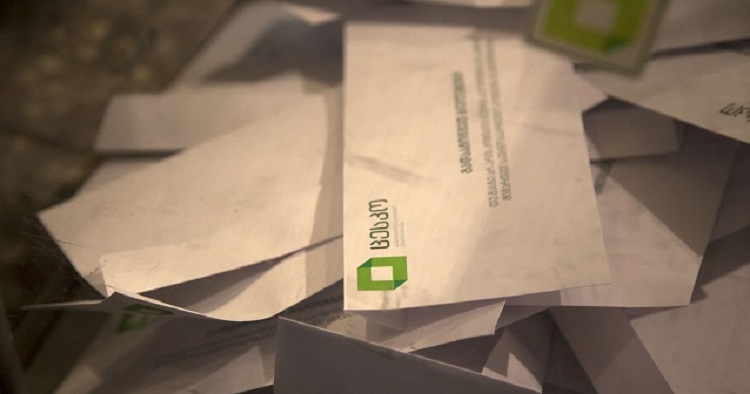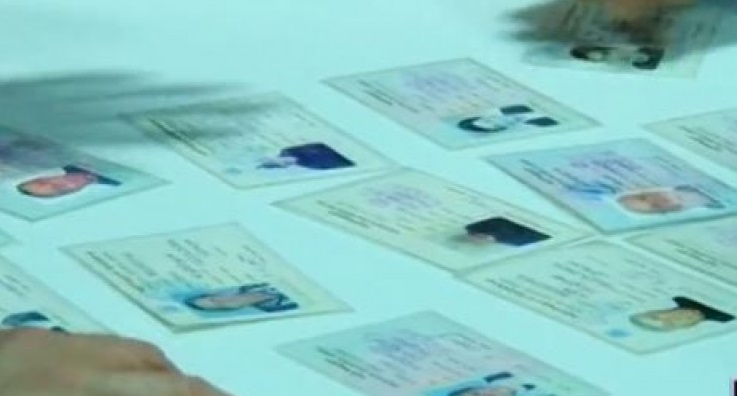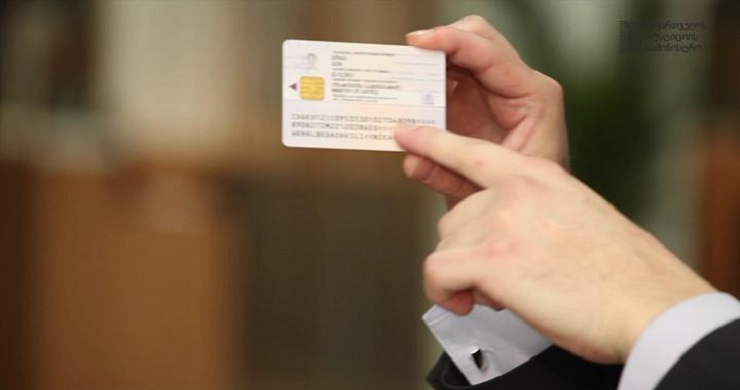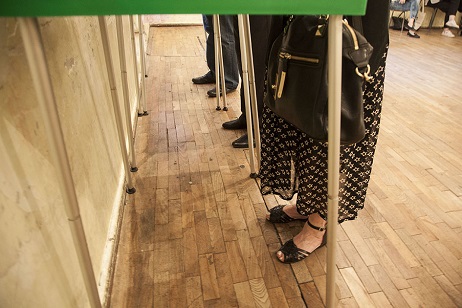Opposition calls upon election commission not to allow voting by non-electronic IDs

Georgian Justice Ministry has allowed the issuance of non-electronic IDs for religious people as the Constitutional Court demanded this. Photo: Nino Alavidze/Agenda.ge.
The United National Movement opposition party has called upon the Central Election Commission of Georgia not to allow voting by non-electronic IDs during the 2020 parliamentary elections.
The opposition says that the ruling party will use non-electronic IDs for “fabricating the elections.”
The Central Election Commission has responded that they will wait for the final verdict of the Constitutional Court of Georgia, adding that the Georgian law allows political parties and observing organisations recheck voters' lists.
The Georgian Justice Ministry allowed for the issuance of one-month, non-electronic ID cards for religious people, following a decision of the Georgian Constitutional Court at the end of 2019 which accepted the lawsuit protesting the current rule of issuing identification documents in Georgia.
The court, which accepted a lawsuit of two citizens against the rule of issuing ID cards and passports, ruled that before the final verdict is delivered, people will be able to receive both electronic and non-electronic IDs.
Plaintiffs Nana Sepashvili and Ia Rekhviashvili dispute the rule of issuing ID cards and biometric passports in Georgia, which bans access to the documents without electronic transmission of information.
They state that the rule violates the constitutional rights of religious people, who see electronic documents as a “lever for exercising control on people in the era of apocalypses”.
Religious people and the church have been demanding the issuance of non-electronic identification documents, together with electronic ones, since 2011.
The plaintiffs say that many religious people in Georgia refuse to accept electronic ID documents, which automatically deprives them of a range of vital necessities and services, and restricts their religious freedoms.
Ruling party members have dismissed the opposition’s accusations, stating that the ruling party has nothing to do with the court’s decision.
 Tweet
Tweet  Share
Share



